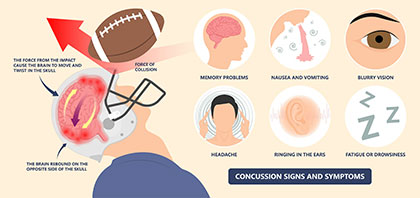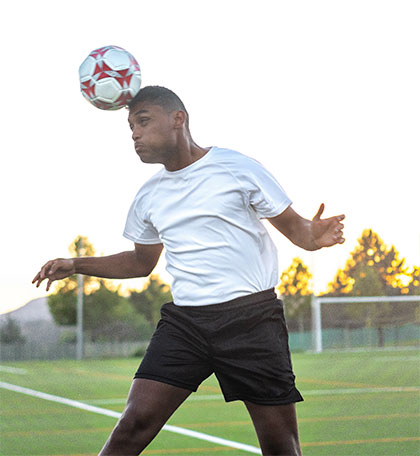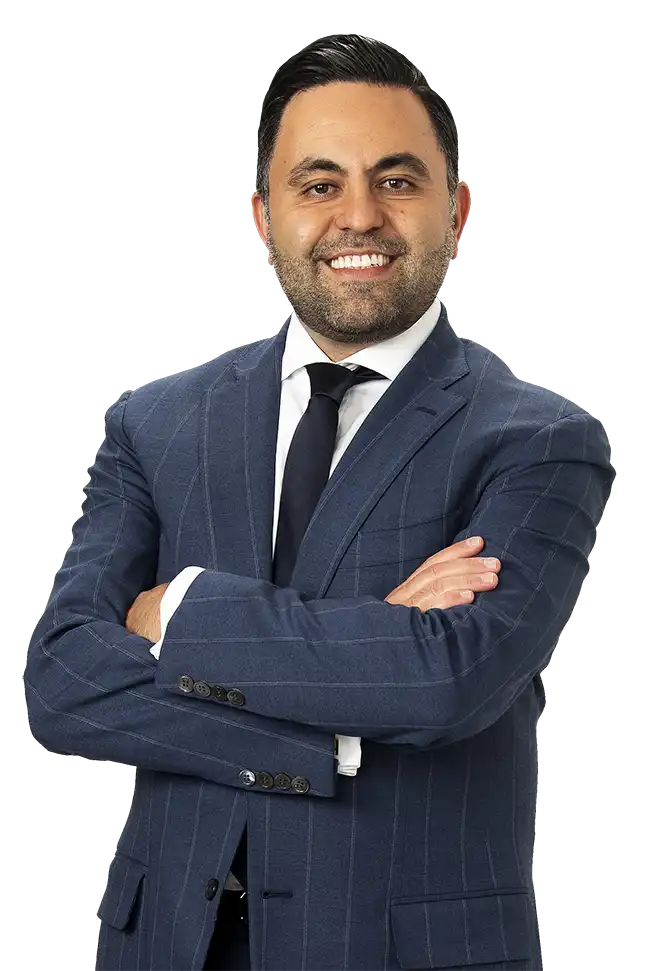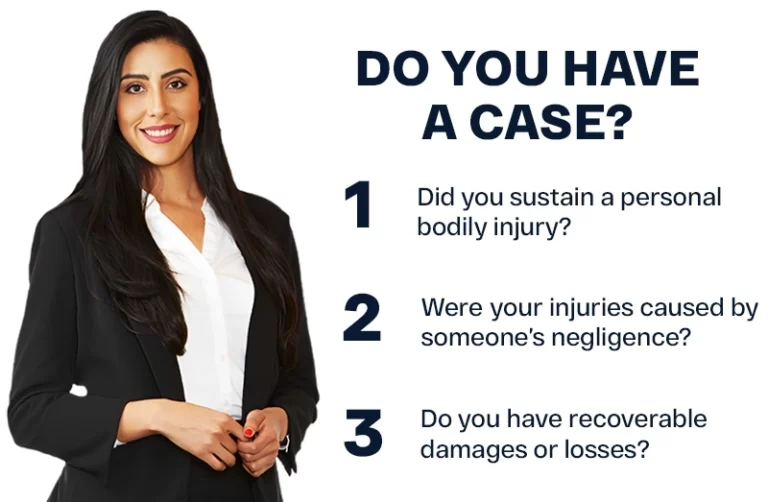Table of Contents
A concussion is a type of traumatic brain injury caused by a blow to the head. The sudden impact causes the brain to shift and move around inside the skull. The movement of the brain can damage cells, and the victim may suffer permanent effects.
Concussions can happen in any kind of accident. Whether you have been injured in a car accident, on the job, during a slip and fall while shopping, or in any other type of accident, you may have legal options for pursuing compensation. An injury lawyer experienced in head trauma can help you understand your rights and available courses of action.
The head injury attorneys at Arash Law are here to help you understand and potentially file for compensation through the claims process. If you or a loved one has suffered a concussion, contact us at (888) 488-1391 or chat with us to schedule a free, no-obligation case evaluation.
How Common Are Concussions? Understanding Recovery Time
A concussion can affect anyone who has suffered a blow to the head. However, according to a study referenced by the Centers for Disease Control and Prevention, youth who participate in sports suffer concussions at these rates:
- 15.1 percent of student-athletes reported they suffered at least one concussion that is related to their sport.
- 6 percent of student-athletes reported they had suffered two or more concussions while playing a sport such as football.
Symptoms Of A Concussion
Concussions happen after a blunt force to the head. A medical evaluation is required to confirm a concussion diagnosis. The following symptoms may indicate that you are concussed:
- Insomnia and other sleeping problems
- Dizziness and vertigo
- Fatigue
- Problems concentrating
- Memory loss
- Depression
- Anxiety
- Light and sound sensitivity
- Changes in personality
- Restlessness
- Headaches
In addition to the above symptoms, people with concussions are more likely to suffer from a condition called cognitive delay. The cognitive delay happens when the brain cannot process information as efficiently as it could before the accident. Some patients describe cognitive delay as brain fog. Patients who have cognitive delays may exert more mental energy to complete simple tasks.
Some people may also experience post-concussion syndrome. Post-concussion syndrome is marked by lingering concussion symptoms that last for weeks or months after the accident.
How Are Concussions Diagnosed?
There are several tests that physicians use to confirm that you suffered a concussion. Your doctor may want to conduct an imaging test, a neurological exam, and a cognitive test before making a conclusion.
Imaging Test
A doctor may order an imaging test if the patient suffers a blow to the head and has seizures, severe headaches, and gastrointestinal problems that get progressively worse. Standard practice is to have potentially concussed patients undergo a CT scan or an MRI to find bleeding or swelling or to identify changes in the brain that confirm a concussion. Children who may be concussed generally do not undergo CT scanning to avoid radiation exposure in children.
Neurological Exam
Concussions can change the mechanical function of someone’s body. A neurological exam tests your balance, coordination, reflexes, strength, sensation, hearing, and vision.
Cognitive Testing
Cognitive testing tests your ability to think and your overall mental function. Your doctor may use several tests to determine if the blow to your head caused a concussion. The tests are focused on finding changes in your ability to recall information, concentrate, and complete tasks, as well as any memory loss.
How Long Will It Take To Recover From A Concussion?
Every concussion requires some kind of recovery. Even mild concussions can take a person away from school or work for an extended period. The severity of your injuries is the determining factor in how long your recovery will take.
Most people who suffer concussions will recover in one week to 10 days. Twenty percent of people who suffer from concussion symptoms take more than six weeks to recover fully. In the worst-case scenario, it can take years for a patient to stop experiencing concussion symptoms.
What Affects Concussion Recovery Time?
In addition to age and health before the accident, there are several factors that affect the speed at which a person suffering from a concussion can expect to recover from their injury. Some factors that may slow the progress of your recovery may include:
- History of past concussions
- Neurological issues that preceded the concussion
- Stress
- Attempting to get back to normal before your body is ready.
Activities To Avoid During Concussion Recovery
After suffering a concussion, medical professionals typically recommend taking it easy, as extreme physical activities may delay your healing process. Healthcare providers generally suggest gradually reintroducing these activities:
- Grocery shopping
- Household chores, including laundry, dishes, or anything that involves heavy lifting.
- Light exercising or other athletic activities
- Traveling
Phases Of Concussion Recovery
Doctors have found that most patients recover from concussions in several phases. Each phase has its own challenges and requires the patient to rest to avoid delaying their recovery.
Acute Phase
The acute phase of concussion recovery happens after the initial hit that caused the injury. During this phase, medical guidance often emphasizes the importance of physical and cognitive rest. This can include temporarily stopping activities that require focus or could overstimulate the brain, such as using a computer, watching television, or driving. These activities may make symptoms worse. As a result, patients can take longer to recover from a concussion than expected, which is why it’s worth following the advice of your doctor throughout the recovery process.
Patients are also vulnerable to second impact syndrome during the acute phase. Second impact syndrome is a life-threatening condition that happens when the patient suffers a second blow to the head before they fully recover from the first injury.
Recovery Phase
During the recovery phase, the patient may continue to feel the effects of the concussion, but they feel an improvement. Patients may still have trouble concentrating, thinking, remembering, learning, and processing information.
During this phase, patients can begin to gradually return to their daily activities while under the direction of a physician.
Chronic Phase
Unfortunately, some patients live with concussion symptoms for months or years after the impact. They may need ongoing neurological treatment, which may involve substantial treatment costs.
During the initial recovery period, a doctor may advise resting and minimizing stress on the brain as much as possible. For the first few days, this may include avoiding the following:
- Bright lights
- Loud sounds
- Computer, laptop, tablet, and phone screens
- Physically demanding activities
- Caffeine
- Alcohol
Patients can take over-the-counter mild pain relievers; however, they should consult their physician regarding pain management, as some common medications may not be recommended after a concussion.
Over the next several days, medical professionals recommend continuing to limit activities that require significant mental focus during this recovery period.
If you are only a few days into your recovery, avoid activities that risk re-injury. You can slowly start to work and attend school again, but take it easy because your symptoms might reappear and derail your recovery.
After one week, many patients experience symptom improvement and may feel more normal. Healthcare providers can assess when patients are ready to safely return to normal activities.
Practical Steps To Take After A Concussion
Although a concussion is a serious medical condition, fortunately, you can do some things at home that may help support your recovery process. If you have suffered a concussion, consider taking the following steps:
Slowly Increase Your Activity Level
After a hit to the head, you should take it easy. A gradual return to activity is often part of a concussion recovery plan, but this process should be guided by a medical professional. A doctor can help determine a safe pace for reintroducing activities.
Get Enough Sleep
Traumatic brain injuries require rest to heal. Patients who suffer from concussions should get rest as soon as it is safe to do so. Overstimulation can delay recovery. Along with getting enough sleep, your doctor’s recovery plan may include taking breaks from work and school when needed.
Avoid Alcohol
To promote healing and reduce the risk of re-injury, your doctor may instruct you to avoid alcohol during your recovery. According to medical research, intoxication may increase the risk of re-injury, potentially worsening the initial injury. Medical professionals warn that patients could develop serious conditions, including second impact syndrome.
What Are My Legal Options After A Concussion?
If you suffered a concussion because of another’s negligence, you might have a legal right to pursue compensation. Concussions can prevent you from working, halt your progress in school, and negatively impact your quality of life. Potential damages an attorney can legally pursue for you may include:
Economic Damages
Economic damage addresses physical losses sustained by victims. They can include current and future medical bills, current and future lost income, lost earning capacity, and other tangible losses related to an accident. If you got a concussion after a road crash, our experienced car accident lawyers could help assess the extent and potential value of these economic damages and other accident-related losses.
Non-Economic Damages
Non-economic damages are the invisible losses a person suffers after an accident. These intangible losses are usually difficult to prove. Non-economic damages typically include loss of enjoyment of life, pain, suffering, inconvenience, decreased quality of life, disability, etc.
Punitive Damages
Punitive damages are intended to deter at-fault parties from committing grossly negligent actions in the future. These damages are not always available, and courts typically only award them in very limited circumstances. California law allows punitive damages to be awarded in cases where there is clear and convincing evidence of oppression, fraud, or malice. A California brain injury lawyer can help you understand whether you have a right to seek punitive damages.
How Can A California Brain Injury Lawyer Help Me With My Concussion Recovery Time?
Supporting concussion recovery after an accident could involve having a legal team working on your side. Your attorney can assist you during settlement negotiations and at trial. The legal team you choose can help you pursue compensation for your losses. A brain injury attorney can help you with a valid claim in the following ways:
Negotiate On Your Behalf
Accident claims begin with negotiating with the insurance company. Navigating the claims process, including negotiations, can be tricky when done alone. An experienced brain injury attorney, such as our own Tina Eshghieh, can advocate for your interests when dealing with insurance adjusters while you focus on recovering from your concussion.
Help Evaluate Your Damages
Some victims are unaware of the full value of their claims and may settle for the first offer you receive. Your attorney will listen to your story, calculate your medical expenses, and help you evaluate if the settlement offer is sufficient to address your losses.
Prepare & Represent You At Trial
Presenting a case in front of a jury or judge requires a lot of preparation. From the moment your complaint for damages is filed, you begin preparing for trial if pursuing your case in court becomes necessary. Experienced brain injury attorneys can help by assisting you with meeting deadlines, filing required pleadings, and preparing you to present your case at trial.
Consult Arash Law And Learn More About Your Legal Options
Our team of brain injury attorneys at Arash Law can help you understand and protect your legal rights after suffering a brain injury in California. For years, our firm has represented injured clients seeking compensation for the losses they incurred due to another’s negligence. We are prepared to offer you the same dedicated guidance. If you or a loved one has suffered a brain injury after an accident, contact us at (888)488-1391 or complete our “Do I Have A Case?” form for a free, no-obligation case evaluation.











